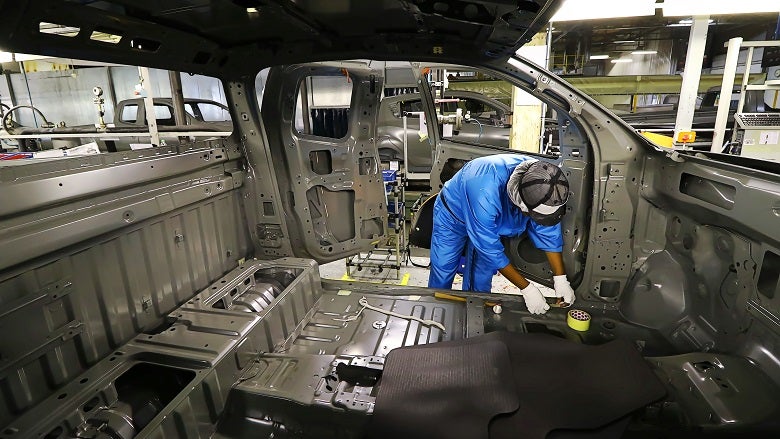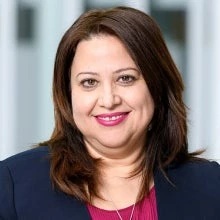
Defying the trend toward deglobalization and economic fragmentation, African nations are uniting to form a free trade area. The project promises to offer the rest of the world a renewed message of hope on the benefits of removing – not erecting – barriers to free flows of goods, services, investment, and ideas across borders.
The African Continental Free Trade Area (AfCFTA) will be the biggest in the world by area and population, uniting 1.46 billion people in 55 countries. Africa’s combined GDP of US$3 trillion is comparable to India’s – and growing fast.
The potential benefits are tremendous. World Bank research shows that the AfCFTA could lift 50 million people out of extreme poverty by 2035 and expand incomes by US$571 billion. Many of the gains would result from unleashing trade within the continent ; currently, African countries trade more with the rest of the world than with each other.
Turning the aspiration into reality will require sustained effort and strong collaboration among African governments, the private sector, civil society, and the international community. That was the consensus among leaders representing those stakeholder groups during a forum in Washington in April alongside the Spring Meetings of the World Bank and the International Monetary Fund.
“The agreement is riding on a wave of unprecedented political support and will,” AfCFTA Secretary General Wamkele Mene told the forum. “But delivering on its promise needs the effective and aggressive implementation of its protocols.”
No doubt, Africa faces myriad challenges. Some countries are plagued by persistent conflict. Difficulties in transacting among 42 currencies impose an estimated $5 billion a year in extra costs on traders. Border procedures can be cumbersome and time consuming. Small-scale cross border trade is flourishing but comes rife with risks, especially for women, who often face harassment and violence.
What is more, it won’t be easy to knit together a disparate group of economies with per capita GDP ranging from $221 in Burundi to $9,100 in Mauritius. But Africa has made a start: Its eight Regional Economic Communities can serve as building blocks. It will be incumbent on wealthier African nations, who are likely to be the first to benefit from freer trade, to catalyze opportunities for economically weaker states, Amany al-Wassal, executive director of Egypt’s Export Development Fund, told the forum.
“We have to lift the small countries and emphasize to them the importance of implementing the agreement,” she said.
Consider auto production. Africa’s three automakers are Egypt, Morocco, and South Africa. These countries will benefit when the auto market opens up in Africa. That, in turn, will create demand for components and raw materials from other African countries such as Zambia, a major copper producer, or the Democratic Republic of Congo, where cobalt for lithium batteries could be mined and processed.
Creating a single market holds huge promise, especially for young Africans, who by 2030 are expected to make up 42 percent of the world’s youth. Opportunities abound in relatively untapped areas such as trade in services – the fastest-growing sector globally and the biggest source of new jobs – and e-commerce. The AfCFTA is expected to draw billions of dollars of foreign direct investment, helping African firms join regional and global value chains.
Value chains will play a big role in helping many African nations overcome their dependence on exports of commodities and develop comparative advantages in areas like agriculture, pharmaceuticals, and clean energy. Value chains allow economies to build their industrial capacity by contributing parts and components rather than manufacturing finished products.
“The pact offers states the opportunity to expedite industrialization and use the existing market for Africa, rather than importing from abroad,” said Elias Magosi, executive secretary of the Southern African Development Community.
Some barriers are already falling. Ghanaian exporters of ceramic tiles to Cameroon have seen tariffs drop by 20 percent as a result of the guided trade initiative. Across Africa, tariffs on 90 percent goods are slated to be phased out entirely by 2034. Even greater gains would come from lowering trade costs and improving hard and soft infrastructure at the borders and beyond them —so-called trade facilitation measures.
Restrictions on trade in services such as tourism, insurance, and transport are slated to be removed. Such barriers, often embedded in thousands of domestic laws and regulations, must first be identified. To that end, the World Bank, the World Trade Organization, and the AfCFTA Secretariat have carried out a comprehensive survey of legislation to identify measures that restrict trade. The resulting Services Trade Restrictiveness Index can be used as a basis for negotiations to liberalize trade in services.
Some of the hardest work is yet to come —harmonizing domestic laws on intellectual property rights, investment protection, e-commerce, and competition policies. This will be crucial to reaping the projected gains in jobs, incomes, and foreign direct investment. Also important will be fleshing out the AfCFTA’s path-breaking protocol on women and youth in trade, which is intended to encourage their participation by, for example, improving access to trade finance.
Crucially, the agreement must have buy-in from African companies large and small, who will be the ones to leverage the opportunities offered by the AfCFTA and drive employment and growth. They will need to build capacity and join in consultations. “The private sector can play a role not just in economic activity but in political dialogue,” Sergio Pimenta, Africa vice president for the International Finance Corporation, told the forum.
Forging a free trade area won’t be easy, as experience on other continents has shown. But African leaders in business, government, and civil society have demonstrated the will to carry the project through. The World Bank Group stands ready to support their efforts, in partnership with the AfCFTA Secretariat and other African institutions.



Join the Conversation